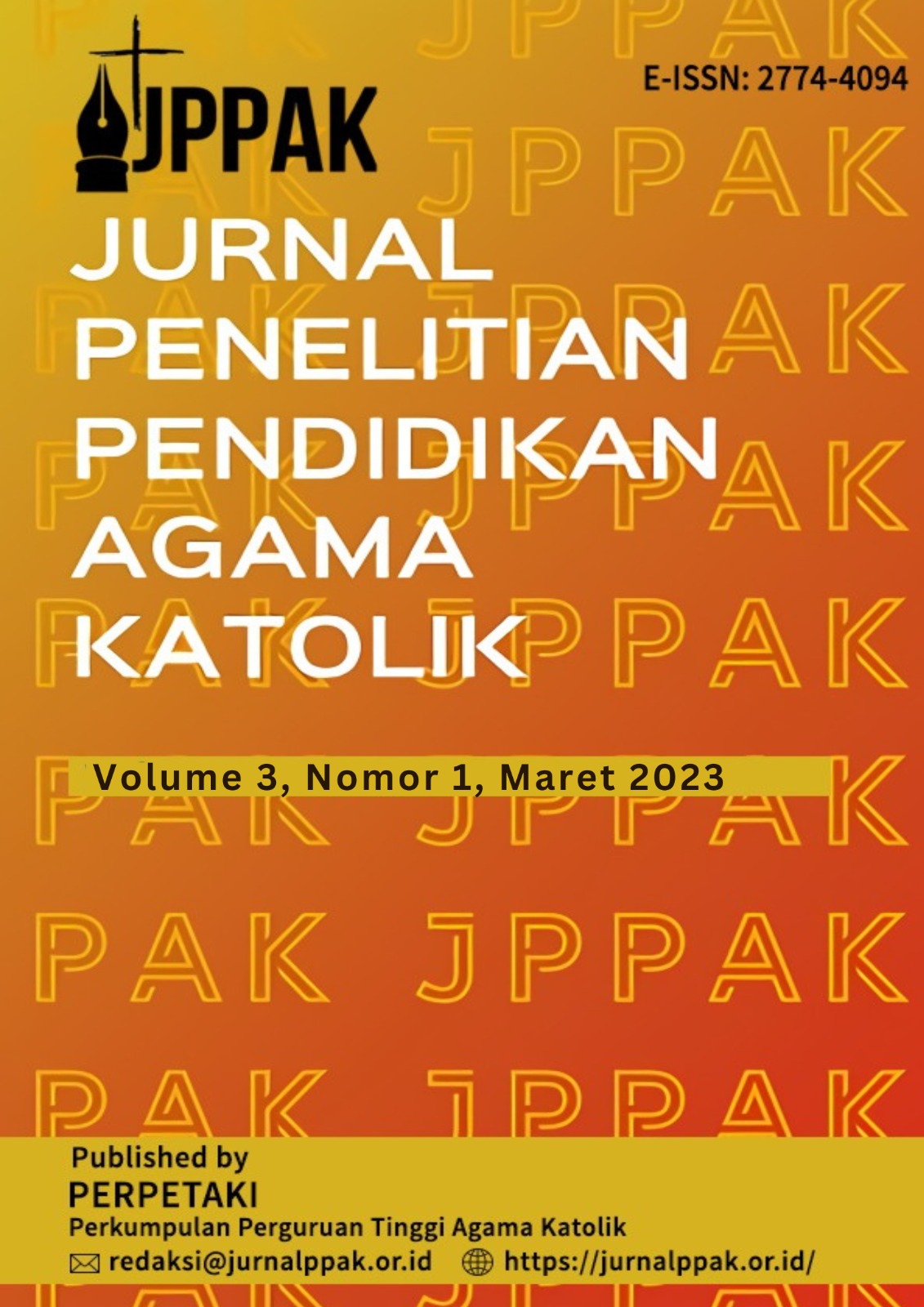Community Perceptions of Student Character Formation at the Catholic School in Ambarawa
DOI:
https://doi.org/10.52110/jppak.v3i1.65Keywords:
Perception, character, Catholic schoolAbstract
Catholic schools are required to have unique character building programs for their students. Character education in Catholic schools is a continuous combination of hard and soft skills building. These two directions of development give students intellectual intelligence and form self-integrity as individuals with strong character. In education, this demand cannot be separated from moral responsibility and competition among the educational instititutions. This competition raises various problems, including the closing down of schools due to various problems. As the phenomenon described in Ambarawa, several Catholic schools had to close down due to the absence of students. This problem is, of course, related to the community's perception of the peculiarities of Catholic schools in character building. This study examines people's perceptions of character-building in Catholic schools. This study uses a descriptive quantitative method with participants, namely the general public who live in Ambarawa City and its surroundings. The results showed that people's perceptions of character building at Catholic schools in Ambarawa were classified as high 70.59%, very high 26.89%, moderate 1.68%, low 0%, and very low 0.84%. The study results show that the public perceives Catholic schools as schools with a clear and visionary education system. The results of this study can be used as evaluation material for policymakers in developing Catholic schools in Ambarawa and its surroundings.
Downloads
##submission.downloads##
Submitted
Accepted
Published
How to Cite
Issue
Section
License
Copyright (c) 2023 Rininta Cintya Sari, Budi Hartana, Adi Wasito

This work is licensed under a Creative Commons Attribution-ShareAlike 4.0 International License.
Copyright Notice and Permissions
Jurnal Penelitian Pendidikan Agama Katolik offers immediate open access to all its content on the principle to make researches freely available to the public, especially to the scholars, to support greater global exchanges of knowledge. This journal encourages all scholarly authors to allow their research openly available, free access and without time restrictions.
All articles published Open Access will be immediately and permanently free for everyone to read and download. Under the CC BY-SA 4.0 license, authors retain ownership of the copyright for their article, however authors grant others permission to use the content of publications in Jurnal Penelitian Pendidikan Agama Katolik (JPPAK) in whole or in part provided that the original work is properly cited. Users (redistributors) of Jurnal Penelitian Pendidikan Agama Katolik (JPPAK) are required to cite the original source by including at least: the full title of the article, the author's or authors' full name(s), JPPAK as the initial source of publication, year of publication and volume number using a propriate citing method.
Copyright encompasses exclusive rights to reproduce and deliver the article in all form and media, including reprints, photographs, microfilms and any other similar reproductions, as well as translations. The reproduction of any part of this journal, its storage in databases and its transmission by any form or media, such as electronic, electrostatic and mechanical copies, photocopies, recordings, magnetic media is prohibited without consent of Jurnal Penelitian Pendidikan Agama Katolik (JPPAK).
Jurnal Penelitian Pendidikan Agama Katolik (JPPAK) is licensed under a Creative Commons Attribution Share-Alike 4.0 International. (CC BY-SA 4.0)
Authors who publish with Jurnal Penelitian Pendidikan Agama Katolik (JPPAK) agree to the following terms:
- Authors retain copyright and grant the journal right of first publication with the work simultaneously licensed under a Creative Commons Attribution Share-Alike 4.0 International (CC BY-SA 4.0) license that allows others to share the work with an acknowledgement of the work's authorship and initial publication in this journal.
- Authors are able to enter into separate, additional contractual arrangements for the non-exclusive distribution of the journal's published version of the work (e.g., post it to an institutional repository or publish it in a book), with an acknowledgement of its initial publication in this journal.
- Authors are permitted and encouraged to post their work online (e.g., in institutional repositories or on their website) after the publication on JPPAK, as long as it not published on other OJS for it will be treated as plagiarism by plagiarism checker apps. It can lead to productive exchanges, as well as earlier and greater citation of published work (See The Effect of Open Access).












